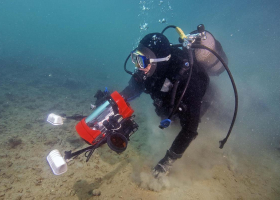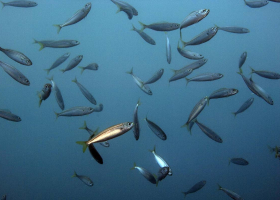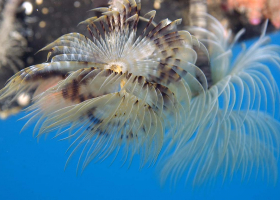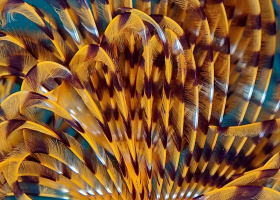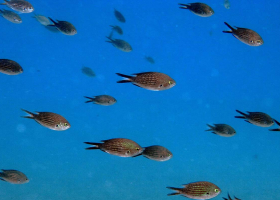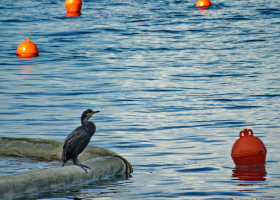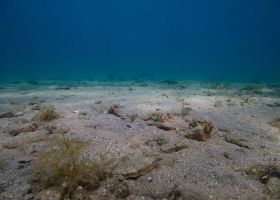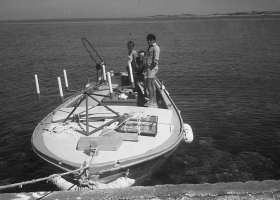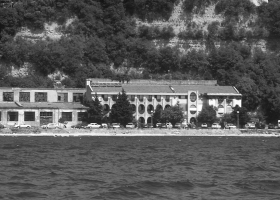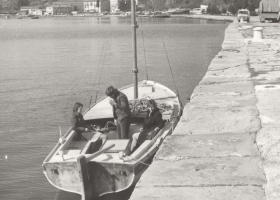26
Feb
50 years of the Marine biological station Piran
50 years of the Marine biological station Piran
This year, the Marine Biological Station (MBP) celebrates its 50th anniversary. The mission of the only Slovenian research unit, which deals exclusively with researching marine ecosystems, is building superior knowledge base for understanding processes and changes in the sea. With it, the MBP researchers guarantee foundation of expertise for the sustainable development of the marine and coastal area.
The MBP’s journey to the current role on the local, state and regional level was long and sometimes demanding and convoluted as we searched for the right balance between the “opportunistic” societal needs for the station, and our own research challenges.
The MBP was founded in 1969 as an independent unit of the Biology Institute of the University of Ljubljana. Much of the credit for its creation goes to professors Franc Sušnik and Jože Štirn. The first station was headquartered in the villa on Sončna pot 10 in Portorož. In 1979, it was moved to the premises of the former soap factory Salvetti on Fornače 41 in Bernardin. Prof. Štirn and his colleagues managed to refurbish some of the factory premises into a relatively modern edifice. The station was renamed to the Marine Research and Education Centre (MRIC), only to return to the original name after a few years. After 25 years, a complete renovation of derelict and outdated laboratories and other areas followed. We moved into the newly built structure on the same location with a wonderful view of the Gulf of Piran between 2004 and 2008. There were eight biologists and two chemists at MBP in the middle of the Seventies. Now, there are 34 employees, including the researchers (26) – of which the majority are the biologists (15), followed by the chemists, two geologists, a physicist, a microbiologist, a computer scientist, and a mathematician.
First research tasks included the survey of fauna and flora specialities of the Slovenian sea, and monitoring the economically significant fish species in the northern part of the Adriatic. The scope of research at MBP expanded through the decades according to the professional structure of employees, and the needs of the local and international expert community. It is interesting, that biodiversity research has remained the central pillar of our activities up to this day, and is included in multiple fundamental and applicative projects.
Like the scope of research, the projects grew as well – not only in their absolute number, but also in the numbers of various international programmes and local services of general interest. The research programme and the ARRS projects are the main framework within which the researchers create and develop the fundamental knowledge, and therefore fulfil their mission – but do not guarantee the financial existence of the unit, not by a long shot. We have to obtain up to 50% of required financial means on the local and foreign markets each year. Our continual existence at home is guaranteed by the national monitoring (ARSO, UVHVVR).
International collaboration began with the Mediterranean Action Plan (MAP) of the United Nations Environment Programme (UNEP), whose objective was to offer support to the Mediterranean countries with assessing and controlling the sea pollution. Other UN agencies played an important role in the first years (e.g. FAO, UNESCO). Today, the MAP’s goals are much more ambitious and follow the recent pressures and changes in the coastal and maritime areas. Therefore, the ecosystem approach is used for condition assessments and management plans in the Mediterranean sea. As an example of the current dispersion of international projects we cite ten different programmes within four European financial instruments (Horizon 2020, structural funds, DG tenders, LIFE programme), to which we have been applying our projects for the last two years. International recognisability that went beyond the “historical” associations with the neighbouring institutions in Italy and Croatia is evident in memberships and collaborations of MBP in numerous European and international networks (EuroMarine, EmodNet, MARS), associations (EuroGOOS), infrastructures (LifeWatch-Slovenia) and UN programmes (UNESCO-IOC).
Promulgation about the sea, spreading awareness, and promoting science are without doubt the areas we are especially known for. MBP associates hold lectures at the largest Slovenian universities and teach the future generations about marine ecology, biodiversity, chemistry, and physical oceanography. We explain ordinary and extraordinary sea phenomena in interviews and public statements, while we are quite prolific in publishing publications. All of the above is the reason our associates received the Prometheus award for science and excellence in communication from the Slovenian Science Foundation – twice. Our hallmark is most certainly the annual MBP Doors Open Day that takes place on June 8, celebrating the World Oceans Day, where we introduce our work to pupils of elementary and high schools, and casual visitors.
Fifty years is a period long enough for us to be able to look back with nostalgia, but the results of our work; our enthusiasm and perseverance (we are, after all, situated on the coast that defies the sea) guarantee that our vision will become/remain routine:
MBP is an internationally recognized research group, leading at the national level, that develops partnerships with academia and government institutions, industry, and other users.
MBP is an internationally recognized research group, leading at the national level, that develops partnerships with academia and government institutions, industry, and other users.






